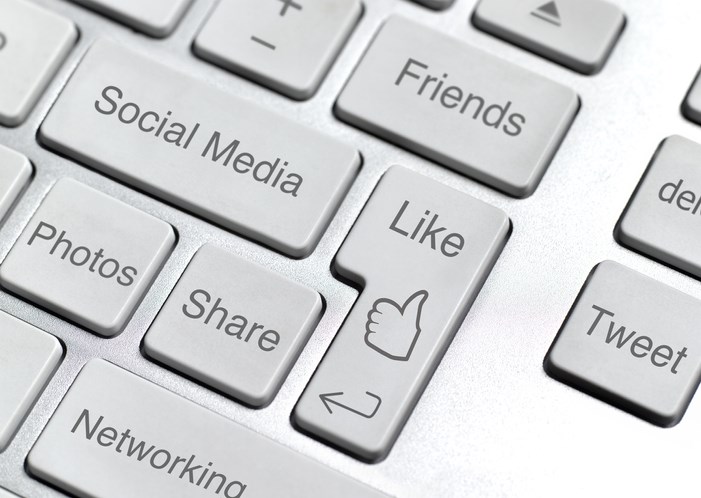Facebook is back, thank heavens, because otherwise there would have been no one to tell me what to think about 90-year-old William Shatner Star Trekking into space next week.
And that, of course, led to a video of Shatner singing (sort of) Common People with Joe Jackson on Jay Leno, which in turn led to Mike Devlin’s five-star review of Jackson’s 2016 Victoria JazzFest show. And so on, until it was 3 a.m. and a bleary-eyed bunny was asking if it could please have its rabbit hole back.
Facebook went down for a few hours Monday and our collective IQ went up.
No fact-free rants. No sanctimonious outrage based on cherry-picked, out-of-context information. No horse dewormer.
No bumper sticker philosophy (“If Plan A didn’t work, the alphabet has 25 more letters!”) No humble-bragging (“I’m honoured to have been invited to chair this year’s campaign….”) No mawkish homilies about people who are so much worse off than you (“Kim has a wooden leg — and termites”) yet achieve so much more.
No Instagramming pictures of food. (Remember when “sharing your lunch” meant giving someone half a sandwich?) No silos in which the Google U science majors can reinforce and echo each other’s ignorance. No tinfoil castles for the conspiracy freaks. “This is what the mainstream media don’t want you to know,” the latter like to say, while posting something about chemtrails, or vaccines, or Obama’s boyhood with ISIS.
The media-conspiracy thing always ticks me off because, gosh, I guess that means our secret is out. We mainstreamers get together on Thursday nights at Spinnakers to co-ordinate the conspiracy, though Chris Gailus always wants to sing karaoke after two beers and Hanomansing usually disappears when it’s his turn to pay for the chicken wings.
Actually, the media-manipulation accusations are kind of touching. I would weep with pride if I thought we were capable of throwing a half-decent conspiracy. Alas, here’s what traditional media really don’t want you to know: there are days when we couldn’t co-ordinate a three-car funeral procession without driving off in four directions and losing the stiff. I came to work with my shirt on inside out last month. Twice.
Traditional media sources — whether in print, television, radio or online — have been hollowed out in recent years, shedding journalists not because of a decline in a desire for news but because much of the advertising revenue that pays the bills has shifted to the likes of Google and Facebook. (Fortune magazine estimates Monday’s outage cost Facebook close to $100 million US in lost ad money, “a drop in the bucket.”) Conventional media are losing out not to other news outlets, but to cat videos and porn.
That leaves a digital landscape dotted by all manner of news sites less dependent on ad dollars for their survival. A lot of people are quite happy about that, arguing — rightly — that the flow of information shouldn’t be filtered through just a few sources. That’s particularly true as the number of traditional news outlets, and the number of voices within them, shrinks.
The problem, though, is that instead of giving us a great wealth of credible sources, social media tends to funnel us into those echo chambers that merely confirm our biases. And often what gets presented as fact is nothing more than what Stephen Colbert calls truthiness — the truth not as it is but as we want it to be, evidence be damned — or information torqued to meet the agenda of whoever is running the site. The line between activism and journalism blurs. Always ask yourself: Who is paying for this? What’s the point of view they’re trying to sell?
Even when well-intentioned, monotheistic sources that present the news from only one perspective, or with only a token quote from the other side, just reinforce the tribalism that divides us. It may sound hokey, but one of the benefits of community journalism is that it acts like a neighbourhood pub, somewhere to sit down and exchange opposing opinions and unconsidered views, preferably without throwing beer in each other’s faces. It’s where we talk things out.
But I digress, as is so frequently and lamentably the case. All I wanted to say on behalf of Facebook’s 2.85 billion account holders, including 27 million in Canada, is that we’re so glad it’s back. Terrible as a news source, but a great place to hear Shatner perform Rocket Man.



